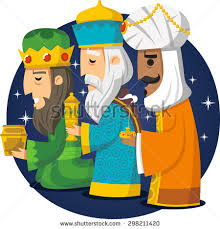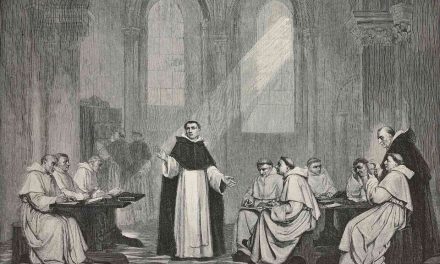There are several feasts at key points on the liturgical calendar where we are reminded forcefully of the universality of Christ’s mission. Pentecost gives us the vision of the Holy Spirit communicating the Gospel across language barriers. Christ the King was instituted in the 1920’s by Pius XI to oppose rising nationalism and fascism – its formal title is “Our Lord Jesus Christ, the King of the Universe.” But the story of the Epiphany is probably the most well-known, the kings (or wise men?) from the East following a star to pay homage to the newly-born King of the Jews.
In reflecting on this feast and its scriptures amidst the “darkness” and “thick clouds” of our world, we might consider three claims:
One, the readings reflect a world where, ideally, even the most powerful figures of the world recognize the need to do homage and adore a higher power. This isn’t only a Christian ideal, of course. In some ways, the American system too rejects monarchy by placing ultimate power in the law; anyone who has been the National Archives and seen the Constitution will sense the fittingness of the space really being like a temple. But this claim is tricky in today’s world. On the one hand, we do hope that powerful leaders who think they can impose their will simply because it is their will – well, we hope that they are humbled by a greater power. On the other hand, we might worry about other powerful leaders who do in fact claim that worldly leaders might worship rightly. The fact that both realities afflict our world might invite us to reflect more deeply on who God really is. Because we probably can’t resolve this problem without a sense of how to answer this.
Thus, two, the claim that “every nation on earth will adore You, Lord” is really about this “You” – the God of Israel, manifested fully in Jesus. The light of the world is Christ, and the promise is that all can be “co-heirs” with the children of Abraham. But again, we might worry about this claim. Is it too exclusive?
Thus, three, the most compelling underlying assumption here is that all of us human beings are one. We are not simply competing groups and powers and nations. The Epiphany may be a specific manifestation of Israel’s mission to be a light to the nations in order to gather them together. But the underlying assumption is the unity of the human race is God’s will. God aims at a universal unity, and the “darkness” and “thick clouds” are the world in which we are not one, but rather are rivals. King Herod, in these readings, represents that world. Any other claim to kingship is a rival to his. And he will stop at nothing to destroy that rival, so that the darkness of division may remain. After all, it’s division that is fundamental to his power. That story of the darkness of division, which lies at the root of inferior human power, still goes on. But it’s wrong. Keep following the star. And if it’s looking like you are going to get sucked in, go home by another route.





